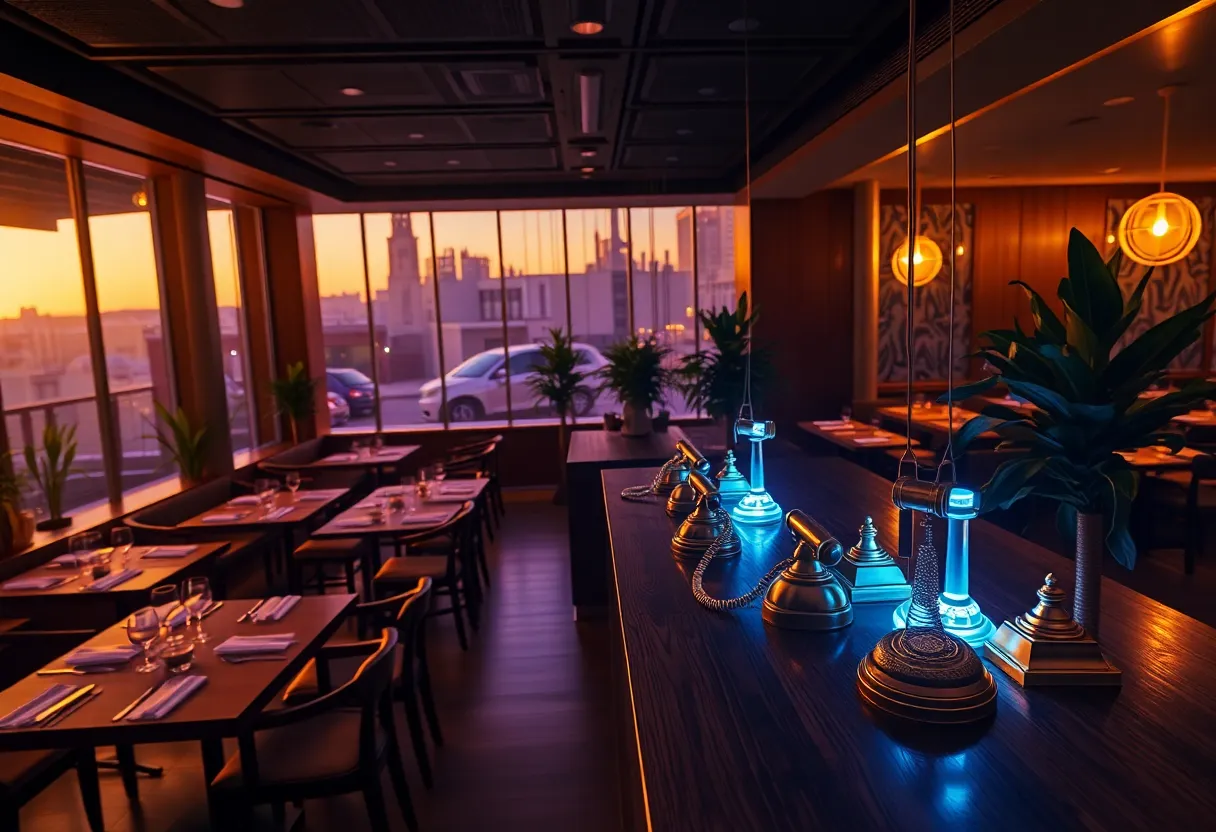June 25, 2025

Did you know that restaurants receive an average of 100 calls per day? This high volume of phone traffic has been a constant challenge for the industry, evolving alongside technological advancements.
Let's take a quick look at how restaurant communication has changed over the years:
The shift towards digital ordering has actually increased call volumes for many restaurants. Customers often call to modify online orders or ask questions about menu items. This surge in calls can overwhelm staff, especially during peak hours.
Here's how the rise of online ordering has impacted restaurants:
These trends have created a need for more efficient communication solutions. Enter AI phone systems, which can handle multiple calls simultaneously and integrate with existing restaurant software.
This video explores how AI is addressing staffing challenges in the hospitality industry, including restaurants. The same technology can be applied to managing high call volumes.
As restaurants adapt to changing customer preferences and technologies, AI phone agents are becoming a key tool for managing communication overload. Our product, Loman.ai, is designed to help restaurants handle these challenges efficiently.
AI phone agents are changing how restaurants handle calls. These smart systems can do a lot to help busy eateries.
One of the biggest perks is that AI agents work 24/7. No more missed calls after hours or during rush times. They can also juggle multiple calls at once, so customers aren't left waiting.
These features help restaurants run more smoothly. Staff can focus on in-person customers while the AI handles phone tasks.
Switching to AI for call handling can really pay off for restaurants. Here are some of the main advantages:
Restaurant owners have seen real results from using AI phone agents. Some report sales jumps of up to 25% after implementing the technology.
Getting started with AI call management is easier than you might think. Here are the basic steps:
The key is picking a system that fits your restaurant's needs. Loman.ai, for example, is designed specifically for restaurants and can handle everything from orders to reservations.
This video shows how AI can boost restaurant sales. It's a great example of the real-world impact these systems can have.
When setting up AI, it's crucial to give it accurate info about your restaurant. This helps it answer questions correctly and take orders properly. Many restaurant owners find the transition smooth, with staff and customers quickly adapting to the new system.
AI phone agents aren't just for big chains. Small restaurants can benefit too. They level the playing field, giving every eatery the chance to offer top-notch phone service.
AI phone agents are quickly becoming a must-have for busy restaurants. As more eateries adopt this tech, we're likely to see some big changes in how restaurants handle calls and serve customers.
Here are some key predictions for AI in restaurants:
Of course, there will be some hurdles to overcome. Training staff to work alongside AI and maintaining a personal touch are two big challenges restaurants will face. But the benefits of never missing a call or order will likely outweigh these concerns for most owners.
As diners get used to instant service from AI agents, their expectations may shift. We could see:
Restaurants that adapt quickly to these changing expectations will have an edge. Those that don't may struggle to keep up with more tech-savvy competitors. Recent research shows that voice AI can boost order accuracy and speed in quick-service restaurants, hinting at its growing importance.
While AI won't replace human staff entirely, it will reshape how restaurants handle phone communication. By automating routine tasks, AI frees up employees to focus on in-person service and complex customer needs. This shift could lead to happier customers and more efficient operations overall.
AI phone agents are changing the game for busy restaurants. They handle calls 24/7, take orders accurately, and manage reservations without a hitch. This tech isn't just for big chains - small eateries are jumping on board too.
The benefits are clear: fewer missed calls, happier customers, and staff who can focus on in-house service. Plus, restaurants using AI are seeing a bump in sales. Loman.ai is one option that's helping restaurants tackle call overload.
As more restaurants adopt this tech, those who don't might fall behind. It's worth looking into how AI could fit into your restaurant's operations. The right solution could mean smoother service, better customer experiences, and a healthier bottom line.
Curious about how AI might work for your restaurant? Check out some real-world examples or try a demo to see it in action. The future of restaurant phone management is here - it's just a matter of picking up the call.
AI phone agent costs vary based on features and call volume. Many providers offer tiered pricing plans starting around $100-$200 per month for small restaurants. Loman.ai provides custom quotes based on your specific needs and potential ROI.
Modern AI agents are trained to manage intricate orders and dietary restrictions. They can clarify details, suggest alternatives, and even upsell when appropriate. For very complex situations, they seamlessly transfer calls to human staff.
AI phone agents like Loman.ai integrate directly with popular POS systems. This allows for real-time menu updates, order processing, and reservation management. The setup process is usually quick, often taking just a few hours.
While AI accuracy is generally high, mistakes can happen. Most AI systems have built-in error detection and correction protocols. They can also escalate issues to human staff when needed. Many providers offer support to quickly resolve any problems.
Customer reactions are typically positive when AI agents are well-implemented. Many appreciate the quick, 24/7 service. Advanced AI like Loman.ai uses natural language processing to create a smooth, human-like interaction that most customers find satisfactory.

Enter your information in the form to receive a call from Loman and place an order like a customer would!